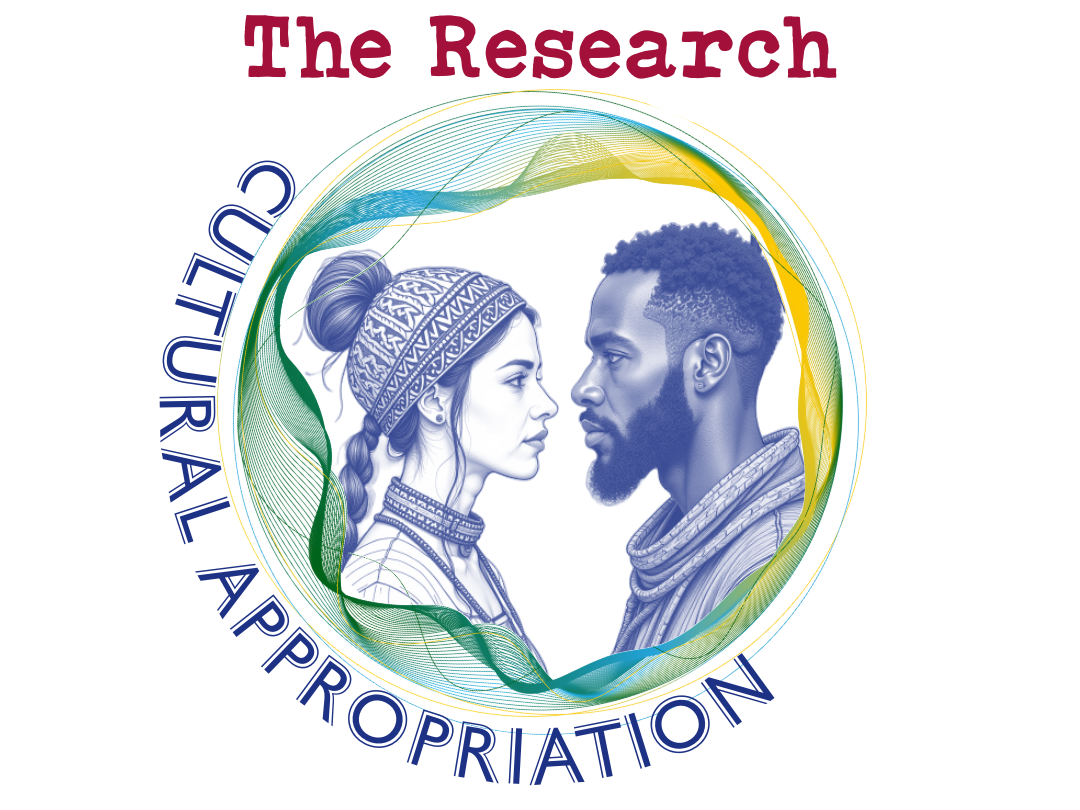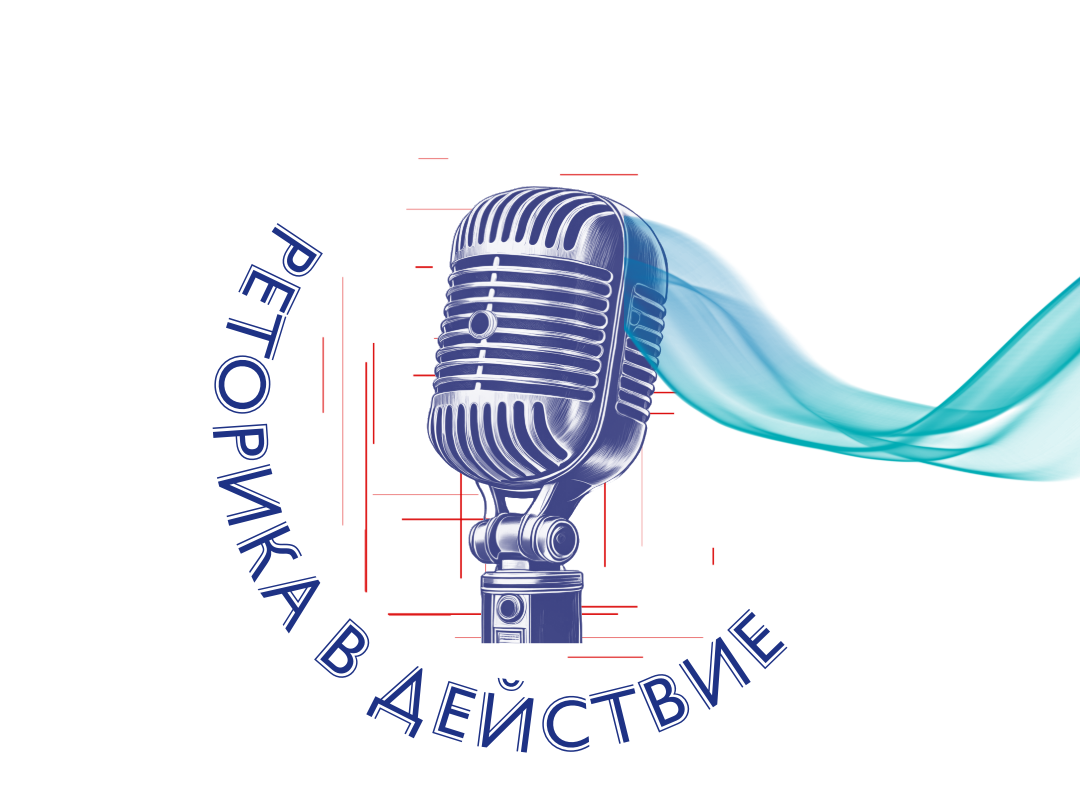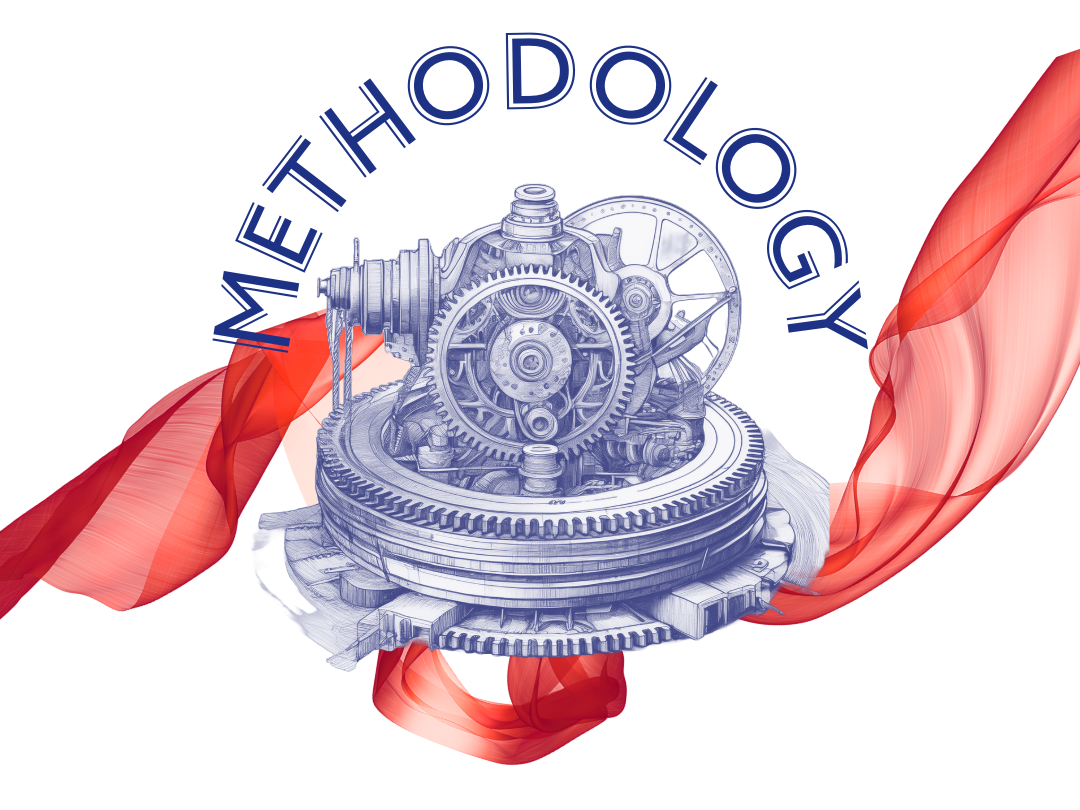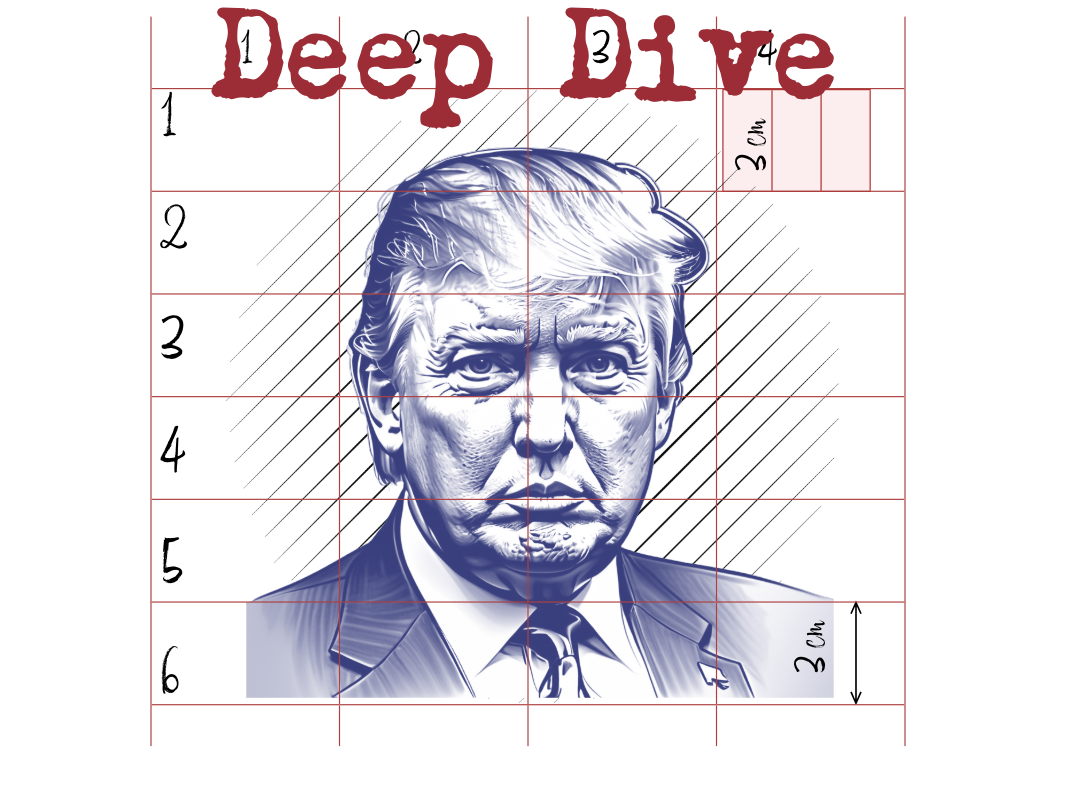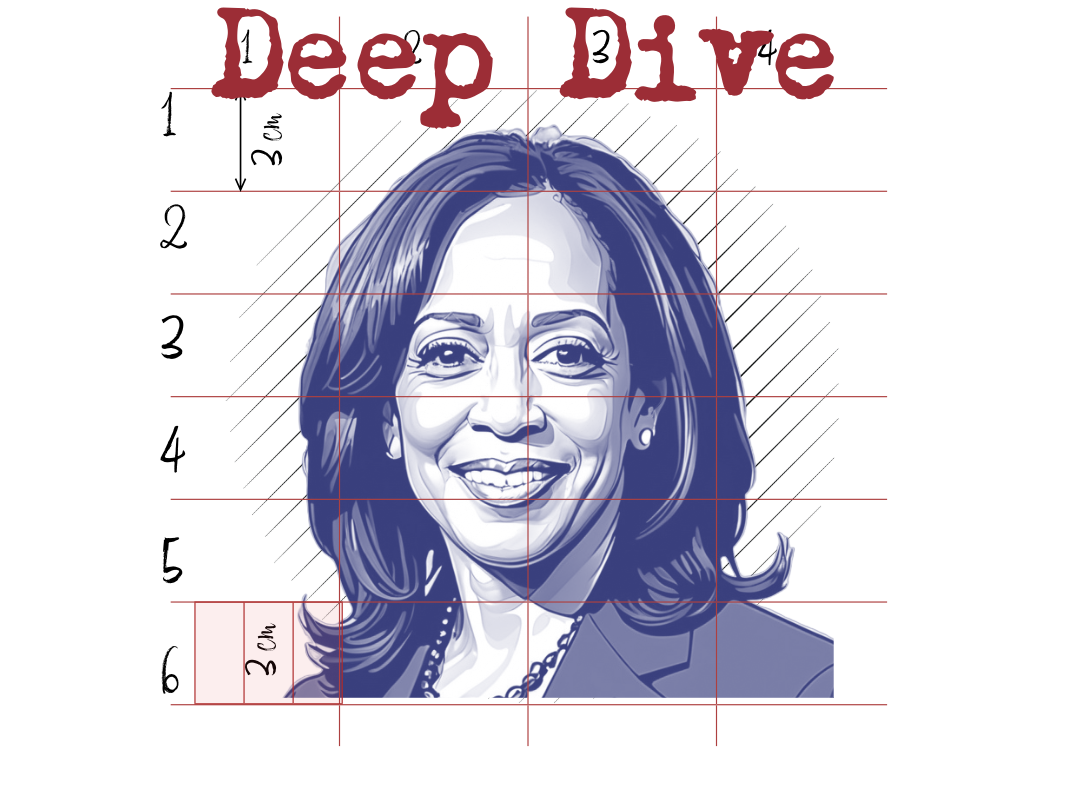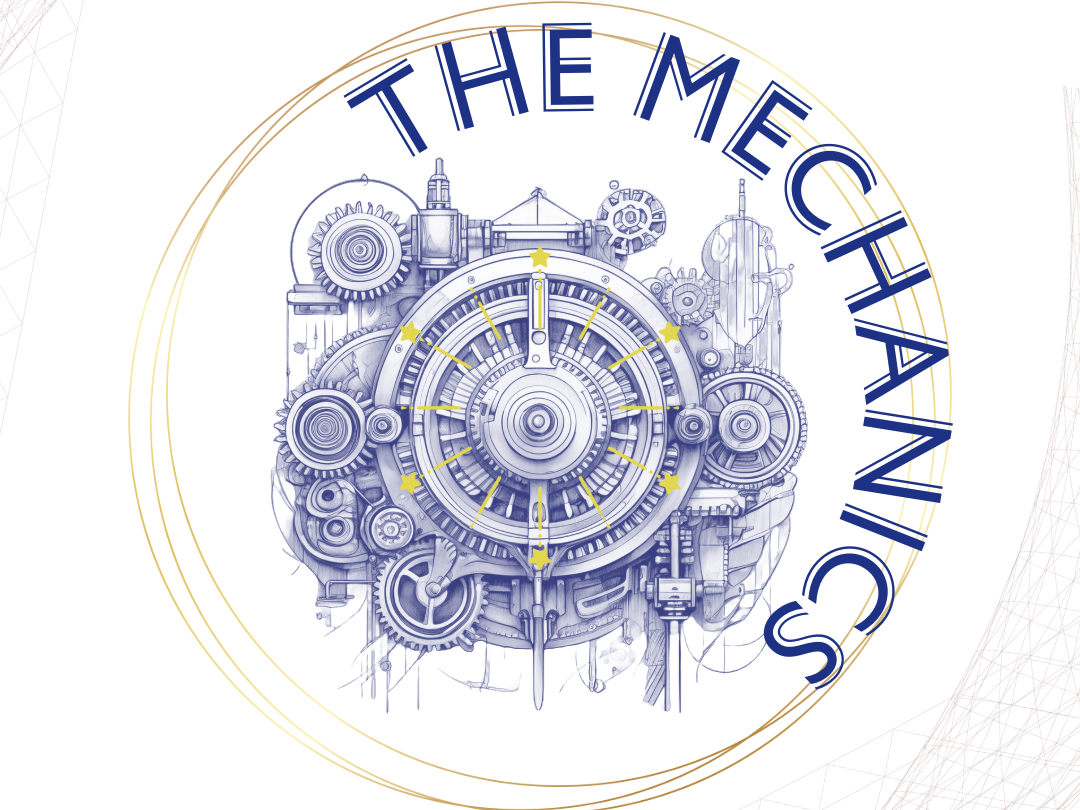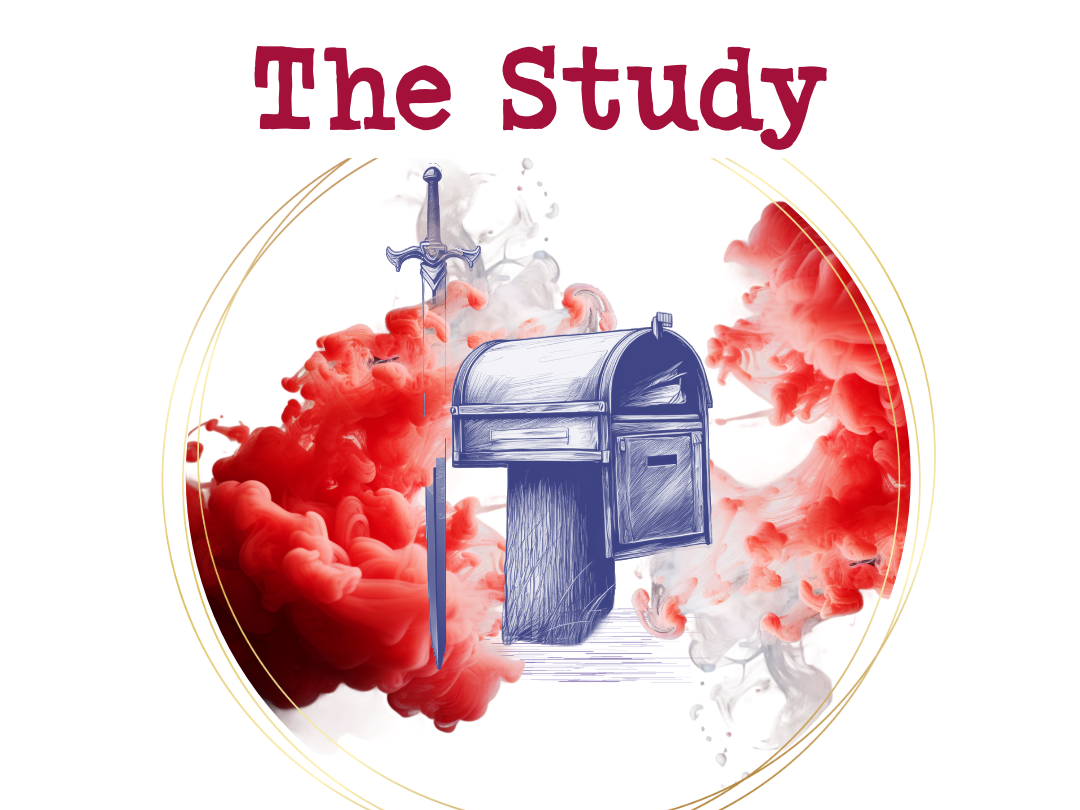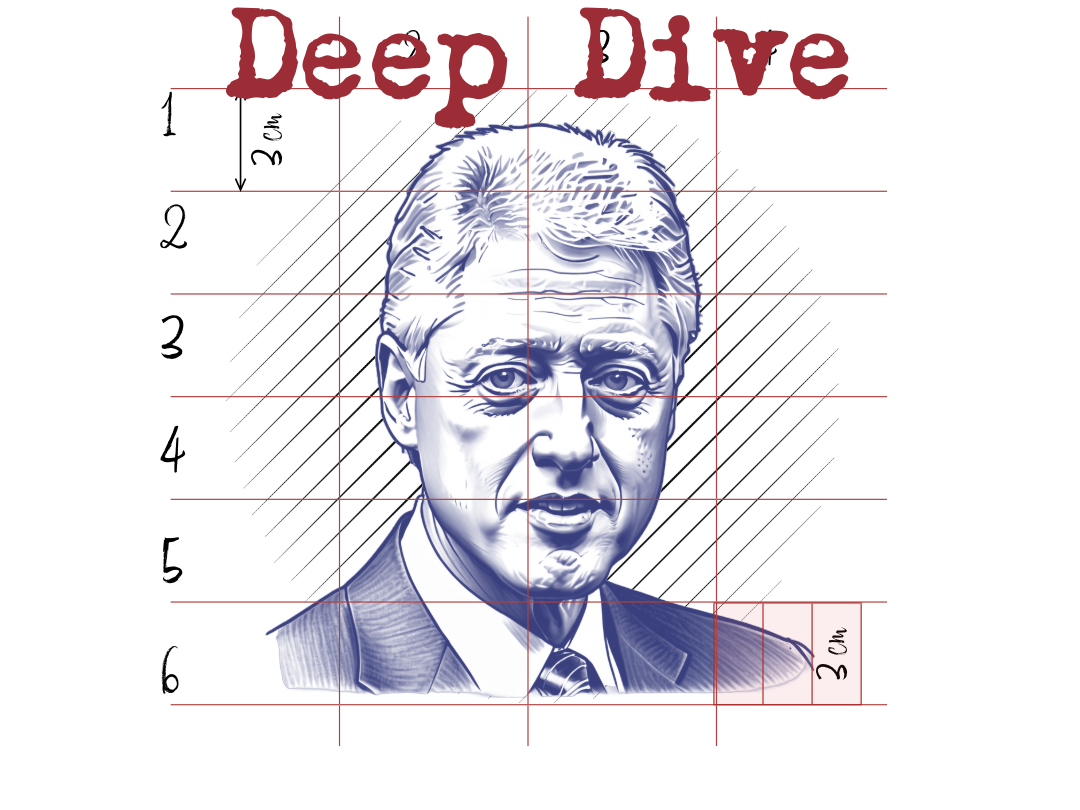Unpacking the Ethical, Psychological, and Media Dynamics of Biden’s Decision to Pardon Hunter Biden
November 1, 2024
Abstract:
This research examines the ethical, political, psychological, and media dynamics surrounding President Joe Biden’s decision to pardon his son, Hunter Biden. The analysis delves into the ethical implications of nepotism and justice, questioning whether the pardon perpetuates political cronyism or serves as an act of compassion. Drawing from theories such as public choice, framing theory, and cognitive biases, the study explores how media outlets and social media platforms have framed the pardon, influencing public perception and trust in the justice system. The psychological pressure of public scrutiny, particularly in the context of political vendettas and familial ties, is also analyzed to understand the complex motivations behind the decision. Finally, the research considers how this pardon could set a precedent for future political actions and potentially deepen national divisions. Insights into how this event might influence President-elect Donald Trump’s governmental reforms are also discussed.
Keywords: Hunter Biden, presidential pardon, nepotism, public choice theory, framing theory, media influence, political strategy, ethical implications, public opinion, cognitive biases, political polarization.
Ethical Implications of the Pardon
The decision to grant a presidential pardon to a family member is fraught with ethical dilemmas that touch upon core principles of justice, fairness, and the integrity of the political system. In the case of President Joe Biden’s pardon of his son, Hunter Biden, the ethical complexities of nepotism, selective prosecution, and the interplay of personal loyalty and public duty are particularly pronounced. By analyzing this decision through the lens of moral philosophy and ethical theories—such as utilitarianism, deontology, and virtue ethics—one can better understand the tensions between public service and personal loyalty, and the potential implications for the broader public trust.
Nepotism and Justice: Perpetuating Unfairness?
The ethical dilemma at the heart of this decision revolves around whether President Biden’s pardon perpetuates nepotism, undermining the foundational ideals of fairness and equal treatment under the law. Nepotism in political systems is often viewed as a corrosive force, eroding meritocratic principles and fostering distrust in institutions. As Corkindale (2007) notes, nepotism is seen as incompatible with the core values of egalitarianism, often breeding inequality in access to power and opportunities (Corkindale, 2007).
In Biden’s case, the act of granting clemency to his son, Hunter, who had been convicted of serious federal offenses—including tax evasion and possession of a firearm by a drug user (U.S. Department of Justice, 2023)—raises the specter of political favoritism. While one could argue that the pardon is an expression of paternal compassion, it also risks appearing as an act of self-interest, given Hunter’s personal and professional connections to the president. This could reinforce perceptions of a political elite using familial ties to shield members from the full consequences of their actions, potentially eroding public faith in the justice system.
Moreover, this action may be compared to historical instances of political nepotism, such as the controversial “midnight pardons” granted by President Bill Clinton in the final hours of his presidency (Fitzgerald & Wurman, 2007). These pardons, including one for financier Marc Rich, were widely criticized for their questionable motivations—especially given the financial connections between those pardoned and individuals with close ties to the Clintons. Although the Biden administration has framed Hunter’s pardon as a correction of perceived injustice, the optics of it being a family affair inevitably draw comparisons to such past instances of political favoritism.
Selective Prosecution: The Politics Behind Legal Decisions
Central to Biden’s justification for the pardon is the notion of selective prosecution, a claim that Hunter was unfairly targeted due to his family connections and the political motivations of his adversaries. President Biden argued that his son’s prosecution was driven by political forces, specifically by Republican lawmakers and a legal system infected by partisanship (Cohen & Klein, 2024). This raises an important ethical question: How does selective prosecution influence public trust in the legal system?
From an ethical standpoint, selective prosecution undermines the very principles of justice, which should be blind to political allegiances. It introduces bias, raising doubts about the fairness of the system. The ethics of impartiality in law demand that individuals be prosecuted based on the nature of their actions, not their political or familial affiliations. In Hunter Biden’s case, while the charges were significant, including tax evasion and falsifying firearm purchase information (U.S. Department of Justice, 2023), the claim of political targeting complicates the narrative. If true, the idea that the prosecution was politically motivated—particularly following Biden’s 2024 election defeat—could further weaken public confidence in the impartiality of the justice system.
Biden’s pardon of his son reflects a broader concern about whether those in power can leverage their position to protect family members from legal consequences, and whether such protections are granted based on merit or political positioning. The implications for institutional trust are profound, as this could set a dangerous precedent for future administrations.
Intentions vs. Outcomes: A Father’s Compassion or Political Strategy?
An equally compelling ethical issue arises when considering the underlying motivations behind the pardon. Was this an act of compassion—a father standing up for his son—or was it strategically motivated to mitigate damage to the Biden family’s reputation and political capital? The question hinges on distinguishing between personal loyalty and public service.
In virtue ethics, the morality of an action is largely determined by the character and intentions of the actor (Triola, 2021). From this perspective, Biden’s decision to pardon Hunter could be understood as an expression of parental love and moral integrity, where the virtue of compassion takes precedence over political considerations. Biden’s longstanding public defense of his son, often framed as a battle against the stigma surrounding addiction (Cohen & Klein, 2024), resonates with a narrative of personal redemption and care.
However, from the utilitarian standpoint, which emphasizes the greatest good for the greatest number (Bentham, 2021), the outcomes of such a pardon must be carefully scrutinized. Does Biden’s decision promote fairness and social harmony, or does it undermine the public’s faith in the legal system and equality before the law? By potentially shielding Hunter Biden from the consequences of his actions, the pardon could be seen as perpetuating an unequal distribution of justice, where the powerful and well-connected are able to avoid the penalties that ordinary citizens might face.
In contrast, deontological ethics focuses on adherence to moral rules and duties (Kant, 2021). Under this framework, a president’s duty to uphold justice and the law might conflict with the duty of personal loyalty to family. Deontologists might argue that a president should not use their clemency power to grant favors to family members, as doing so would violate the principle of impartiality in law and governance. The act of pardoning Hunter Biden may, therefore, be seen as a failure to fulfill the ethical duty of treating all individuals equally before the law.
Political Nepotism: A Closer Look at Power, Public Opinion, and Strategic Moves
The decision to pardon Hunter Biden raises important questions about political nepotism, particularly in the context of the Biden administration. Nepotism, the preferential treatment of family members, especially in positions of power, often draws public scrutiny as it challenges foundational democratic values like meritocracy, fairness, and accountability. When a political leader extends clemency to a family member, it inevitably sparks concerns about power dynamics, public trust, and whether such decisions are rooted in personal loyalty or political calculation. By analyzing these dimensions through the lens of political economy and public choice theory, we can gain deeper insight into the motivations and consequences of Biden’s decision.
Power Dynamics: Reinforcing or Challenging Corruption and Cronyism?
At the core of political nepotism lies the question of power—how it is distributed and who controls it. The pardon granted to Hunter Biden, a private citizen with significant familial ties to the president, highlights the often murky intersection between personal and political influence. The ability to extend clemency within a family context raises significant ethical and political concerns. On one hand, a president’s decision to pardon a family member can be seen as an exercise of personal power, driven by a sense of duty to protect loved ones. On the other hand, it can reinforce perceptions of cronyism and corruption, especially when such acts are perceived to be in service of personal or political interests.
Public choice theory provides a useful framework for understanding these dynamics. As Shughart (2021) explains, public choice theory assumes that political actors, like all individuals, are motivated by self-interest. This perspective suggests that political decisions—including acts of clemency—are often driven by strategic calculations, with personal and political benefits influencing the outcomes (Shughart, 2021). When a president pardons a family member, especially in a context where the individual is facing serious legal consequences, it could be interpreted as an attempt to solidify familial loyalty while also managing political risk. Such decisions may challenge public perceptions of fairness and lead to questions about whether power is being wielded to protect family interests at the expense of justice and public trust.
In this case, Biden’s ability to pardon Hunter raises significant concerns about the concentration of power within a family and its potential for misuse. Historical examples of political nepotism, such as the controversies surrounding the “midnight pardons” issued by Bill Clinton, further illustrate the dangers of blurring the lines between personal loyalty and public service (Fitzgerald & Wurman, 2007). The perception that family members of powerful political figures are above the law, or receive preferential treatment, can deeply undermine public faith in democratic institutions and the integrity of governance.
Impact on Public Opinion: Erosion or Reinforcement of Trust?
One of the most critical consequences of political nepotism is its impact on public opinion. The pardon of Hunter Biden raises significant questions about how voters perceive the integrity of the political system. Does Biden’s decision reinforce or erode trust in the government? Do voters believe that political figures use their influence to protect their families, and does this undermine the concept of equal justice under the law?
From a public choice perspective, one might argue that such acts of clemency can lead to a broader erosion of trust in political institutions. Voters, particularly those already skeptical of the political system, may view the pardon as another example of political elites using their power to shield family members from the consequences of their actions. This reinforces the perception of a political system rigged in favor of those with wealth, power, and familial connections. As the GoodParty.org (2024) article on political nepotism emphasizes, when family members of political leaders are granted special privileges, whether in the form of job appointments, legal protections, or other advantages, it leads to a sense of injustice among the broader electorate. Such perceptions foster cynicism, particularly in a democracy that values transparency, fairness, and equal opportunity (GoodParty.org, 2024).
Moreover, the backlash from certain segments of the public, particularly those who view Biden’s decision as politically motivated, may serve to deepen partisan divides. As noted by critics of the pardon (Cohen & Klein, 2024), many believe that the clemency was a direct response to the political attacks on Hunter Biden, raising concerns about the fairness of the justice system when political influence is perceived to play a role in legal outcomes. Public opinion, therefore, is shaped by a complex interplay of political ideologies, perceptions of fairness, and the public’s general trust in political leaders to act in the best interests of society, rather than in defense of family or political interests.
Electoral Strategy: A Political Move or a Strategic Necessity?
The question of whether Biden’s pardon of Hunter Biden was a strategic electoral move is central to understanding the political motivations behind the decision. Was the pardon an attempt to mitigate political damage and solidify support within a specific political base, or was it an act driven purely by compassion and family loyalty? In the context of public choice theory, this decision can be viewed as part of a broader political calculus aimed at securing personal and political benefits.
Political economy and public choice theory both suggest that political decisions are often strategic, driven by the need to maintain power, control, and electoral support. The Biden administration’s decision to issue the pardon—despite the initial public statement that no pardon would be granted—may have been influenced by the political dynamics at play. Given the ongoing political narrative surrounding Hunter Biden’s business dealings, particularly his connections to Ukraine and China, the pardon could be seen as an attempt to defuse a growing political scandal. By addressing the issue before it could become a focal point in the 2024 elections, Biden might have hoped to prevent further damage to his own political career and to that of the Democratic Party.
In this regard, Biden’s pardon decision mirrors the logic of political maneuvering seen in other administrations. For example, during the Clinton administration, the controversial “midnight pardons” issued in the final hours of Bill Clinton’s presidency were seen as a strategic move to protect political allies and family members (Fitzgerald & Wurman, 2007). Similarly, Biden’s decision to pardon his son can be understood as a calculated response to political pressures, designed to solidify support among key political allies and mitigate ongoing political damage.
Additionally, as Shughart (2021) discusses in public choice theory, the behavior of political actors is often shaped by incentives that align with self-interest. Biden’s political survival—particularly after a loss in the 2024 presidential race—may depend on controlling the narrative surrounding his family’s legal troubles. In this sense, the pardon could be seen as part of a broader strategy to ensure that the Biden family remains politically viable, even in the face of public scrutiny and legal challenges.
Comparing Political Nepotism Across Eras
The concept of political nepotism and the use of pardons for family members is not new, and history offers valuable comparisons. In the past, political figures have used their pardoning power to shield family members and allies, often raising questions about the ethics of such decisions. From John F. Kennedy’s appointment of his brother Robert Kennedy as Attorney General to Bill Clinton’s controversial pardons in 2001, the issue of nepotism in politics has been a recurrent theme in American political life (GoodParty.org, 2024; Fitzgerald & Wurman, 2007).
Each of these instances shares common threads: the use of political power to protect family members or allies from legal consequences, often in ways that undermine public trust. In many cases, such actions have been met with public backlash, prompting calls for reforms to prevent nepotism from undermining democratic institutions. Yet, as Shughart (2021) argues, political systems are inherently prone to such dynamics, where individuals in power use their influence to further their personal and familial interests.
The Ethics and Realities of Political Nepotism
The pardon of Hunter Biden raises fundamental questions about the nature of political nepotism, the ethics of clemency, and the broader implications for public trust and governance. While the decision may have been driven by personal loyalty and compassion, it also reflects the political realities of power, strategy, and the desire to maintain control in an increasingly polarized political environment. As public choice theory suggests, political actors are motivated by self-interest, and Biden’s decision may very well have been part of a broader strategy to protect his political capital. However, the perception of nepotism, whether justified or not, has significant consequences for the public’s trust in democratic institutions and the fairness of the justice system.
By examining the ethical, political, and historical dimensions of this decision, we see how the intersection of personal loyalty and political strategy continues to shape American political life. The consequences of this decision—whether reinforcing or eroding public trust—will resonate far beyond the immediate political landscape, influencing the way future administrations approach the delicate balance between family loyalty and public service.
Psychological Dimensions of the Pardon: Cognitive Pressures, Public Scrutiny, and Media Influence
The psychological forces that influence decision-making, especially in the context of public office, cannot be underestimated. In the case of President Joe Biden’s pardon of his son Hunter Biden, the cognitive and emotional pressures that come with public scrutiny, political vendettas, and media framing are central to understanding the motivations behind this controversial decision. By delving into the psychological dynamics at play—such as the impact of public pressure on decision-makers, and the media’s role in shaping public perception—we can better understand the complexities of this political and personal moment.
Psychological Pressure of Public Scrutiny: The Impact of Political Vendettas
Public scrutiny is a powerful psychological force that can profoundly shape the decisions of political leaders, particularly when their family members are involved. In the case of Hunter Biden, President Biden has suggested that his son’s prosecution was politically motivated, claiming that Republicans sought to weaponize the justice system in an attempt to damage his political career (Cohen & Klein, 2024). The emotional burden of such allegations can influence the president’s psychological state, adding pressure to defend his family while navigating the complex terrain of public office.
The theory of cognitive dissonance provides a useful lens for understanding how such pressures can shape decision-making. Cognitive dissonance occurs when individuals are confronted with conflicting beliefs or behaviors, creating psychological discomfort. To reduce this discomfort, people often engage in rationalization, justifying their actions to align with their existing beliefs or desires (Maloney, 2019). For President Biden, the emotional and psychological discomfort of seeing his son face legal consequences—especially under the backdrop of partisan political attacks—may have influenced his decision to grant a pardon. The dissonance between his role as a public servant and his desire to protect his son could have been mitigated by framing the pardon as an act of justice, defending his family against what he perceives as an unjust and politically motivated prosecution.
This psychological pressure is amplified when leaders feel that their personal and political identities are at stake. In the case of a father’s defense of his son, the decision to extend clemency may be viewed as an act of emotional loyalty, protecting a family member from the harsh consequences of the legal system. Yet, as public choice theory suggests, the motivations behind political decisions are often shaped by self-interest (Shughart, 2021). The decision to issue a pardon may also be influenced by the desire to avoid further political damage, reinforcing the notion that the personal is political, and that family loyalty may sometimes blur the lines of impartial governance.
Media Influence on Public Perception: Shaping the Narrative
Media framing plays a significant role in shaping public opinion, especially when it comes to high-profile political decisions like presidential pardons. In the case of Hunter Biden’s pardon, the media’s portrayal of the event has been deeply polarized, with different outlets emphasizing varying aspects of the story depending on their political leanings. As the media is often the primary source of information for the public, it holds considerable power in shaping how events are perceived and interpreted.
Research in media psychology shows that media coverage can influence public opinion through processes like framing and agenda-setting. According to framing theory, how an issue is presented in the media can significantly impact how it is perceived by the public. For example, some media outlets have framed the pardon as a necessary act of fatherly compassion, emphasizing Biden’s desire to protect his son from the perceived injustices of the legal system (Cohen & Klein, 2024). Others, however, have framed the pardon as an example of political corruption, suggesting that Biden is using his presidential powers to shield his family from the consequences of legal wrongdoing (Cohen & Klein, 2024). This dichotomy in media portrayal is reflective of deeper political divisions and influences how different segments of the public interpret the decision.
The psychological effects of media framing are significant. Confirmation bias, a cognitive bias where individuals favor information that aligns with their preexisting beliefs (Maloney, 2019), means that media consumers are likely to absorb and accept information that fits their political worldview, while dismissing or discounting contradictory information. In this case, individuals who already support President Biden may be more likely to view the pardon as an act of justice, while critics may perceive it as a self-serving political maneuver. This selective exposure to media coverage reinforces existing opinions and strengthens political polarization, as individuals interpret the same event through different cognitive and emotional filters.
Additionally, motivated reasoning—the tendency to accept information that aligns with one’s desires and reject information that challenges it—further compounds the psychological dynamics at play (Maloney, 2019). In the context of the pardon, motivated reasoning may lead individuals to interpret the decision as either a necessary act of familial loyalty or a strategic move to protect political interests, depending on their partisan beliefs. This cognitive bias means that the public is not always evaluating the pardon on its merits alone, but through the lens of emotional and political motivations, which distorts the objectivity of their judgment.
The Emotional and Cognitive Effects of Media on Public Opinion
The psychological effects of media coverage on public opinion cannot be overstated. The way the media frames Hunter Biden’s pardon has profound implications for how it is perceived by the electorate. As media outlets amplify certain narratives, they also trigger emotional responses from the public. For many, the pardon is a symbolic issue that taps into broader anxieties about corruption, fairness, and political loyalty. These emotional responses are compounded by the cognitive biases of confirmation bias and motivated reasoning, which filter the information people receive and reinforce their preexisting political beliefs.
The affective reasoning theory suggests that people’s emotions often drive their decision-making processes, even in political contexts (Maloney, 2019). In the case of the pardon, individuals’ emotional responses—whether outrage or empathy—may play a crucial role in how they evaluate the president’s actions. If media coverage emphasizes the injustice of Hunter Biden’s prosecution and frames the pardon as a protective measure for a family member under unfair attack, individuals may feel more sympathetic to the decision. Conversely, if the media portrays the pardon as an example of nepotism and political cronyism, public outrage may be amplified, leading to a negative evaluation of Biden’s actions.
Psychological Pressures and Media Influence in the Pardon Decision
The psychological dimensions of President Biden’s decision to pardon his son are deeply intertwined with cognitive biases, emotional responses, and the framing of media narratives. The pressures of public scrutiny, political vendettas, and media influence create a complex psychological landscape in which leaders are required to navigate difficult decisions that have both personal and political consequences. The media plays a crucial role in shaping public perception of these decisions, amplifying emotional responses and reinforcing existing biases. By examining the cognitive and emotional aspects of decision-making, we can better understand the motivations behind the pardon, as well as its broader implications for public trust and political discourse.
Media Coverage and Public Opinion: Framing of Hunter Biden’s Pardon
The media plays a critical role in shaping public opinion, especially when it comes to controversial political decisions like President Joe Biden’s pardon of his son, Hunter Biden. The way the pardon is framed by different media outlets significantly influences how the public perceives the action and the individuals involved. In this section, we explore how framing theory applies to the media’s coverage of the pardon, how it affects public opinion, and the role social media plays in amplifying and distorting these narratives.
Framing of the Pardon: Compassion vs. Corruption
According to framing theory, the way an issue is presented by the media impacts how the audience perceives it (Mass Communication Theory, 2024). In the case of Hunter Biden’s pardon, traditional media outlets and social media platforms have provided starkly different frames that influence how the public interprets the decision.
On one hand, CNN and other liberal-leaning outlets have framed the pardon as a compassionate act by a father protecting his son from what they describe as politically motivated legal proceedings. Biden’s statement that his son was “selectively, and unfairly, prosecuted” (Cohen & Klein, 2024) has been emphasized to portray the pardon as a corrective act in response to partisan attacks rather than a politically motivated decision. This framing positions the action as one of moral obligation and fairness, where Biden, as a father, is exercising his power to protect his family from political vendettas.
In contrast, conservative media outlets have framed the pardon as an example of political corruption, claiming that Biden’s use of presidential power to protect his son undermines the integrity of the justice system. Fox News and other right-wing sources have highlighted the connection between Hunter Biden’s business dealings and the political clout of the Biden family, casting the pardon as a form of nepotism that undermines the rule of law. This narrative reinforces concerns about political cronyism and the erosion of democratic fairness. According to framing theory, these contrasting frames can significantly influence how the public interprets the same event, depending on which media outlet they consume (Mass Communication Theory, 2024).
Social Media and Confirmation Bias
Social media platforms such as X and Bluesky provide fertile ground for the amplification of these media frames. Social media users often reinforce their pre-existing beliefs by interacting with content that aligns with their political views, a phenomenon known as confirmation bias (Maloney, 2019). This dynamic intensifies the polarization surrounding Biden’s pardon.
On X users with more conservative leanings have been vocal about their displeasure, accusing Biden of using his power to protect his son from justice. Comments like those from @PrashunGRoy point to the fact that Hunter Biden was convicted by his father’s judge, suggesting a conflict of interest, and calling it a “shame” that Biden interfered in the process. Such reactions underscore the belief that the pardon is part of a broader pattern of corruption, reinforcing negative perceptions of the Biden family’s involvement in politics.
On the more liberal side, Bluesky has seen a different narrative unfold. For example, users like @jackstronf.bsky.social argue that the Hunter Biden charges were politically motivated, with Hunter being targeted simply because of his connection to his father. This framing portrays the pardon as an act of justice, correcting an unfair prosecution. Users like @littlesilverwolf.bsky.social argue that the charges against Hunter were politically driven and emphasize that he is not an elected official, suggesting that his actions were not as politically damaging as the media and his critics make them out to be. Similarly, @Phil.bsky.social supports Biden’s decision to pardon his son, viewing it as an appropriate exercise of clemency in the face of what they perceive as a vendetta.
This contrast in social media reactions reflects how framing theory influences public opinion. Users on both sides engage with the frames that align with their political beliefs, often disregarding or dismissing information that contradicts those frames. The confirmation bias(Maloney, 2019) at play in social media interactions deepens the polarization of the issue, as individuals actively seek out information that reinforces their existing views, rather than engaging in critical, balanced analysis.
Cognitive Bias and Motivated Reasoning
The framing of Hunter Biden’s pardon also highlights the role of motivated reasoning in shaping public perception. Motivated reasoningrefers to the tendency for individuals to accept information that aligns with their desires or pre-existing beliefs and to reject information that conflicts with them (Maloney, 2019). In the case of the pardon, individuals on both the left and right may be motivated by their political beliefs to either justify or condemn the action. On the liberal side, those who view Biden favorably may embrace the framing of the pardon as an act of compassion and fairness, minimizing its political ramifications. On the conservative side, those critical of Biden may readily accept the frame of political corruption, viewing the pardon as a form of political favoritism that undermines justice.
This motivated reasoning further polarizes public opinion, as each side reinforces its beliefs rather than critically engaging with opposing viewpoints. The psychological pressure of partisan identity can drive individuals to rationalize decisions in a way that maintains consistency with their political views, often resulting in more entrenched positions.
The Psychological Pressure of Public Scrutiny
Biden’s decision to pardon Hunter Biden also reflects the psychological pressure of public scrutiny. The psychological pressure of public and political backlash likely influenced Biden’s decision to grant clemency. As he publicly stated, the legal charges against Hunter were part of a political vendetta, suggesting that his son was unfairly prosecuted due to his family connections. From a psychological perspective, this narrative may have heightened Biden’s emotional drive to protect his son, not only out of parental love but also in response to external political pressures.
This external pressure is compounded by the media and public reactions, which further influence a leader’s decision-making process. The need to manage public perception and maintain political capital can lead to decisions that prioritize emotional or familial considerations over legal or ethical concerns. As public choice theory suggests, political leaders are often guided by their own self-interest and the desire to maintain power, which may explain the pardon as both a personal and strategic decision (Shughart, 2021).
The Power of Media and Cognitive Biases in Shaping Public Opinion
In conclusion, the framing of Hunter Biden’s pardon by various media outlets and the psychological dimensions of public scrutiny illustrate the powerful role the media plays in shaping public opinion. Whether framed as an act of fatherly compassion or political corruption, the media’s influence on how the public perceives the pardon is undeniable. Social media amplifies these effects, with users engaging with content that reinforces their beliefs, further deepening political divides. Confirmation bias and motivated reasoning serve to entrench partisan views, making it more difficult for individuals to engage with alternative perspectives. Ultimately, the framing of the pardon is not just about the pardon itself but about how it is presented and interpreted through media channels that influence the public’s emotional and cognitive response.
Conclusion
The decision by President Joe Biden to pardon his son, Hunter Biden, is a case that intertwines ethical dilemmas, political motivations, psychological pressures, and the pervasive influence of media framing. Through a multidisciplinary lens—drawing from ethics, political theory, psychology, and media studies—we can gain a deeper understanding of the motivations behind the pardon, its potential consequences, and the broader implications for public trust and the political climate in the United States.
Ethical Dilemmas and the Precedent of Nepotism
From an ethical perspective, the pardon raises questions about nepotism and justice. By offering clemency to his son, Biden may have perpetuated the perception of political favoritism and undermined the principle of fairness under the law. The serious charges against Hunter Biden, including tax evasion, illegal possession of firearms, and false statements related to his firearm purchase, represent significant criminal offenses that are often the subject of intense public scrutiny (Cohen & Klein, 2024). These charges carry the potential to set a precedent where future political leaders may feel emboldened to use their power to shield family members from legal consequences, thus reinforcing a culture of extreme nepotism.
As we have seen in other political scandals involving figures like Marc Rich and Roger Clinton (Fitzgerald & Wurman, 2007), such acts of clemency can breed public cynicism and a growing distrust in political institutions. This is particularly problematic in a democracy, where the electorate expects accountability and the application of justice without bias. If presidents or other political figures consistently use their power to protect their families, the political system risks being viewed not as a meritocratic system but as a cronyistic one, where elite families are above the law. This could further divide the nation, as citizens begin to question the fairness of political processes, particularly when those processes seem to disproportionately favor the powerful.
Political Nepotism and the Impact on Trust
In terms of political strategy, the decision to pardon Hunter Biden can be understood as an act of both family loyalty and political necessity. The use of presidential clemency in this instance can be seen through the lens of public choice theory, which asserts that political actors are often motivated by personal interests (Shughart, 2021). Biden, recognizing the intense political pressure surrounding his son’s legal troubles, may have acted to protect his political career and preserve his legacy. The influence of public opinion, especially in an era of polarization, cannot be underestimated. If Biden had allowed his son to face legal consequences, it could have been used as a powerful tool by his political opponents to damage his presidency. On the other hand, granting the pardon could shore up support among Biden’s political base, who may view it as a vindication for a son who was allegedly targeted by political adversaries.
However, this act raises troubling questions about the ethical implications of pardoning family members, particularly when the charges involve such significant offenses. If the use of executive clemency becomes routine in cases of nepotism, it could further erode public trust in the political system, creating a perception of corruption that may alienate voters across party lines. This dynamic could lead to a situation where political dynasties continue to dominate U.S. politics, regardless of qualifications, further deepening societal divisions and polarization (GoodParty.org, 2023).
Psychological Pressures and Media Influence
The psychological pressure of public scrutiny is an important factor in understanding why Biden may have chosen to issue the pardon. As discussed through the lens of motivated reasoning and confirmation bias (Maloney, 2019), political figures often act under intense emotional pressure to protect their family members. The media, particularly the mainstream media and social media platforms, can exacerbate this pressure by framing the situation in ways that encourage partisan interpretations, thus influencing public opinion. The media framing of the pardon plays a critical role in shaping how the public views both the act of pardoning and the individuals involved. As the coverage of the pardon unfolds, audiences will interpret the action in ways that align with their pre-existing beliefs, reinforcing the divide between liberal and conservative perspectives.
On social media platforms, such as Twitter and Bluesky, the pardon has been framed in sharply polarized terms. On the left-leaningplatforms, the pardon is often defended as an act of fatherly love and justice, positioning Hunter Biden as a victim of political targeting(Cohen & Klein, 2024). In contrast, right-leaning platforms criticize the pardon as another example of political corruption and cronyism, highlighting the seriousness of the charges and questioning whether Biden would have made the same decision if his son were not politically connected (Cohen & Klein, 2024). These differing frames, shaped by cognitive biases and motivated reasoning, influence public perceptions of the pardon and contribute to the growing political polarization in the U.S. media landscape.
The Precedent of Nepotism and National Division
The precedent of nepotism set by high-profile pardons—especially when involving serious criminal charges—can have far-reaching consequences for the future of American democracy. The case of Hunter Biden is particularly significant because it involves not just a simple act of clemency but a highly publicized, politically charged decision that has sparked intense debates about the ethics of presidential power and the role of family connections in American politics. If such acts become normalized, the message to the public is clear: those in power are not bound by the same rules as ordinary citizens. This could lead to an even more fractured political environment, with citizens losing faith in their ability to influence the system and the belief that justice is reserved only for those with the right connections (Shughart, 2021).
The seriousness of the charges—tax evasion, illegal possession of firearms, and false statements—creates a troubling precedent. Pardoning individuals who have committed such offenses not only raises questions about fairness but also invites accusations of corruption. As political nepotism becomes more entrenched, the risk of undermining public trust grows. The decision to pardon Hunter Biden, while potentially an act of personal loyalty, raises important questions about the future of political ethics in the United States and the strength of democratic institutions.
President-Elect Donald Trump’s Reform Agenda and Public Perception
Looking ahead, President-elect Donald Trump—who has already signaled his intent to reform various aspects of the government—may perceive Biden’s pardon of Hunter Biden as a symbolic action of political favoritism. Given his past criticisms of the Biden family and his stance on governmental corruption, it is likely that Trump will use this moment to emphasize the need for stricter anti-nepotism lawsand government accountability. Trump’s potential policy proposals to curtail executive clemency powers or create more transparency in the use of presidential pardons could play a significant role in framing the upcoming presidential race.
Trump’s reform agenda is likely to center on draining the swamp of political corruption, and the pardon of Hunter Biden may provide him with a potent narrative to draw contrasts between his approach and that of the Biden administration. His base might view Biden’s pardon as a political misstep and an example of elitism, reinforcing Trump’s message of challenging the Washington establishment. Conversely, Biden’s supporters may argue that the pardon was a necessary act of fatherly compassion amidst political persecution.
The public’s perception of Trump’s response will likely be shaped by confirmation bias (Maloney, 2019) and media framing, with each side of the political spectrum interpreting the events in ways that reinforce their existing beliefs. As the nation continues to grapple with issues of political ethics, media influence, and public trust, Trump’s response to Biden’s pardon could set the stage for further political polarization and offer fresh insights into the power dynamics of presidential decision-making.
References
Berman, D. (n.d.). Clemency: How presidential pardons work and their implications. Ohio State University.
Brennan, G., & Lomasky, L. (1983). Democracy and deliberation: A philosophical approach to democratic theory. Cambridge University Press.
Corkindale, G. (2007, September 4). Nepotism: The unspoken rules. Harvard Business Review. Retrieved from https://hbr.org/2007/09/nepotism-the-unspoken-rules
Fitzgerald, P., & Wurman, I. (2007, August 9). Trouble followed three of Clinton’s ‘midnight pardons’. The Hill. Retrieved from https://thehill.com/homenews/administration/8272-trouble-followed-three-of-clintons-midnight-pardons/
Maloney, J. (2019, April 16). Confirmation bias & motivated reasoning. Intelligent Speculation. Retrieved from https://www.intelligentspeculation.com/blog/confirmation-bias-amp-motivated-reasoning#:~:text=In%20short%2C%20confirmation%20bias%20is,analyze%20that%20which%20doesn’t.
Public Choice. (n.d.). Public Choice Theory by William F. Shughart II. Retrieved from https://www.econlib.org/library/Enc/PublicChoice.html
Roy, G. (2021). Nepotism: History, politics, culture, and ethnicity. In The Encyclopedia of Social Inequality (pp. 1-2). Springer. https://doi.org/10.1007/978-3-319-71066-2_82-1
Triola, V. (2023). Virtue, utilitarianism, & deontological ethics: What are the differences? Springer.
Hunter Biden charges. (2023). U.S. Department of Justice. Retrieved from https://www.justice.gov/d9/2023-09/23-cr-00061%20%28Indictment%29.pdf
Hunter Biden charges - Second indictment. (2023). U.S. District Court, Central District of California. Retrieved from https://www.justice.gov/sco-weiss/media/1327746/dl
Mass Communication Theory: Framing Theory. (n.d.). Mass Communication Theory: From Theory to Practical Application. Retrieved from https://masscommtheory.com/theory-overviews/framing-theory/
Hunter pardon’s reaction on social media. (2024, December 1). Reactions on social media platforms X (formerly Twitter) and Bluesky.
All Rights Reserved | Vesselina Davenport | 2024
